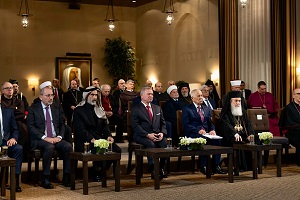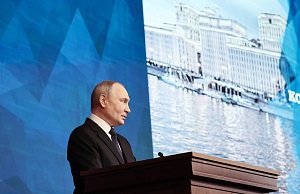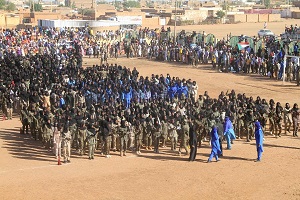Redeployment and Iran’s Only Choice - By Salman Al-dossary, Asharq Al-Awsat
While the world is waiting for the outbreak of war in the Gulf, especially after the attacks on four vessels off the port of Fujairah and on two pumping stations in Saudi Arabia, the US-Gulf alliance surprised everyone with a tactic that is very different from Iran’s escalation path, through the redeployment of US forces in the region, as revealed by Asharq Al-Awsat on Sunday.
It was a brilliant scenario indeed. No one imagined, or even expected that the Iranian impulse would be faced by a bigger step that prevented it from pushing for a new war. The goal is to avert war and prevent Iran from continuing its provocations and reckless behavior, especially that the region was on the verge of an all-out confrontation.
After the redeployment, Iran will not dare to take any foolish or provocative action. It sees the severity of the expected response as a catastrophe, in addition to the mounting pressure of the economic sanctions, the effects of which proved to be faster than expected.
There are nine military bases in the Gulf - Five of them are American (including the Central Command headquarters in Qatar), two British bases, a French base, and a Turkish base, as well as 54,000 US troops in 12 military bases across the Middle East. This means that the American military presence in the region is not recent.
What is new, however, is the presence of US troops along with the Gulf military forces in the bases and ports of Gulf States, with their approval and coordination. This means that the redeployment will be a sword against Iran, as it will prevent it from maintaining its provocative actions and will thwart its attempt to escalate the situation militarily or to attack Gulf States or US interests in the region.
Recent developments have necessitated a redefinition of the elements of security and the rearrangement of priorities in the region. What is important here is that redeployment is not meant to ignite war, but rather to deter it. It is a strong pressure on Iran to make it respond to demands for a renegotiation of the nuclear agreement and to accept to become a natural state, like its neighbors, no more and no less.
After the liberation of Kuwait from the Iraqi invasion in the early nineties, the first US-Gulf military strategic alliance was established to ensure the security of the Gulf against any direct threats. Given the partial fall of Saddam Hussein’s regime at a first stage, and its complete collapse in 2003, this strategic alliance was directed against the Iranian regime, which alone threatens the stability of the region.
It is true that the American presence is much older, but the strategic alliance has become more rooted and stronger during the last two decades, given the continuous tensions in the region and Tehran’s aggressive behaviors, which grew to an unbearable stage. This has created a common vision between the United States and its Gulf allies on the need to raise the red card in the face of Iran, as no side had so far been more patient with its behavior than its neighbors.
Iran is facing two problems: the first lies in its domestic situation which is about to explode due to the unprecedented economic sanctions, while the second is the negative attitude of its allies (Russia and China) and the trivial position of the Europeans on the nuclear agreement.
The war is in front of it and the economic catastrophe behind it. With the redeployment of US troops and the prevention of any reckless military move, there is no solution for Tehran but to rush to negotiate a new deal to replace the lifeless agreement. A deal that would be similar to that of North Korea when it was at a loss of solutions. This might take a while to achieve, but it is Tehran’s only choice after it has exhausted all other options for more than 40 years.
Latest News
-
 US, Qatar, Turkey, Egypt meet in Miami to discuss Gaza truce on Friday
US, Qatar, Turkey, Egypt meet in Miami to discuss Gaza truce on Friday
-
 King receives Christian, Muslim religious leaders from Jerusalem, Jordan ahead of Christmas
King receives Christian, Muslim religious leaders from Jerusalem, Jordan ahead of Christmas
-
 Putin says Russia will 'certainly' achieve its goals in Ukraine
Putin says Russia will 'certainly' achieve its goals in Ukraine
-
 Sellami: Jordan target Arab Cup glory against ‘strong’ Moroccan side
Sellami: Jordan target Arab Cup glory against ‘strong’ Moroccan side
-
 RSF destroying evidence of atrocities in Sudan - report
RSF destroying evidence of atrocities in Sudan - report